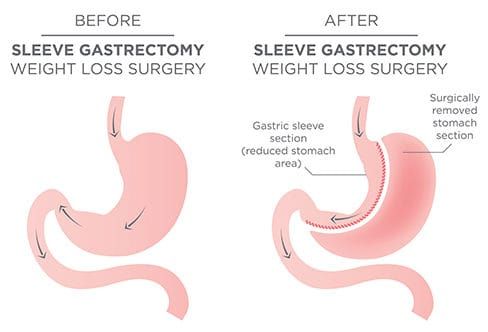Weight loss surgery, also known as bariatric surgery, is a medical procedure aimed at helping individuals who are severely overweight or obese. It involves modifying the stomach or digestive system to reduce food intake or nutrient absorption, ultimately leading to weight loss. However, weight loss surgery is not a decision that should be taken lightly. It is important to thoroughly understand the risks, benefits, and eligibility criteria before considering this option.
Different Types of Weight Loss Surgery
There are several types of weight loss surgery available. The most common ones include:
Gastric Bypass Surgery: This procedure involves creating a small pouch at the top of the stomach and bypassing a segment of the small intestine. It limits both the amount of food you can consume and the absorption of nutrients.
Gastric Sleeve Surgery: During this procedure, a large portion of the stomach is removed, leaving a smaller sleeve-shaped stomach. It restricts the amount of food that can be eaten and reduces hunger hormones.
Gastric Banding: In this surgery, a band is placed around the upper part of the stomach, creating a small pouch. The band can be adjusted to control food intake.
Who Is Eligible for Weight Loss Surgery?
Weight loss surgery is typically considered for individuals with a body mass index (BMI) of 40 or higher, or a BMI of 35 or higher with obesity-related health conditions such as type 2 diabetes, high blood pressure, or sleep apnea. It is important to consult with a healthcare professional who specializes in bariatric surgery to determine if you meet the eligibility criteria.
Risks and Complications
Like any surgical procedure, weight loss surgery carries risks and potential complications. These may include:
Infection at the incision site.
Leakage of stomach contents into the abdominal cavity.
Development of gallstones.
Nutritional deficiencies due to reduced nutrient absorption.
Development of ulcers.
Obstruction or narrowing of the stomach or intestine.
Benefits of Weight Loss Surgery
Weight loss surgery can provide numerous benefits to those who are eligible and committed to making long-term lifestyle changes. Some potential benefits include:
Significant weight loss over a period of 12-18 months.
Improvement or resolution of obesity-related health conditions such as type 2 diabetes, high blood pressure, and sleep apnea.
Enhanced mobility and overall physical fitness.
Improved quality of life and self-esteem.
Considerations before Making a Decision
Before deciding on weight loss surgery, it is crucial to consider the following factors:
Long-term commitment: Weight loss surgery is not a quick fix. It requires a lifelong commitment to dietary and lifestyle changes to achieve and maintain desired results.
Psychological considerations: The emotional and psychological aspects of weight loss surgery should not be overlooked. Counseling and support groups may be beneficial in coping with these challenges.
Cost and insurance coverage: Weight loss surgery can be expensive, and not all insurance plans cover the procedure. It is important to evaluate the financial implications and explore insurance coverage options.
Alternative weight loss methods: Before opting for surgery, one should explore less invasive weight loss methods such as diet modifications, exercise, and behavior changes.
Post-operative care and support: After the surgery, regular follow-up visits, dietary adjustments, and ongoing support are essential for successful outcomes.
Conclusion
Weight loss surgery can be a life-changing option for individuals struggling with severe obesity. However, it is not suitable for everyone. Thorough evaluation, understanding the risks and benefits, and considering alternative weight loss methods are important steps in determining if weight loss surgery is right for you. Consulting with a healthcare professional specializing in bariatric surgery is crucial to make an informed decision regarding your weight loss journey.






